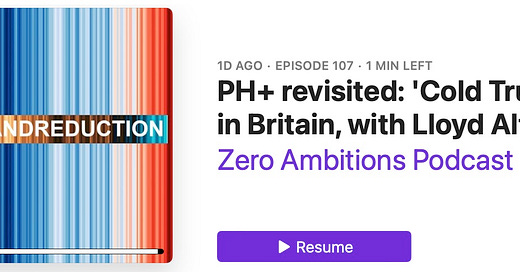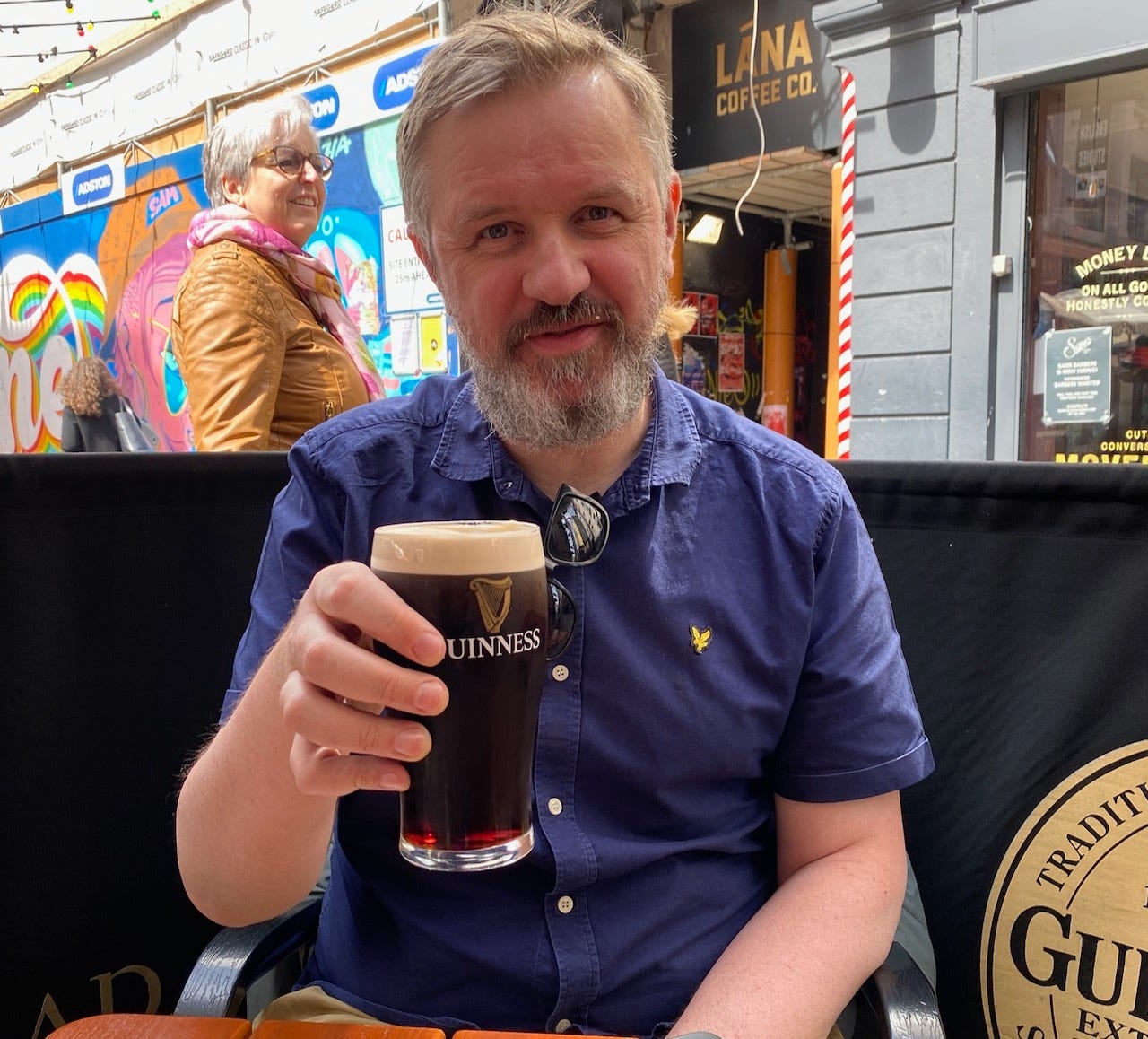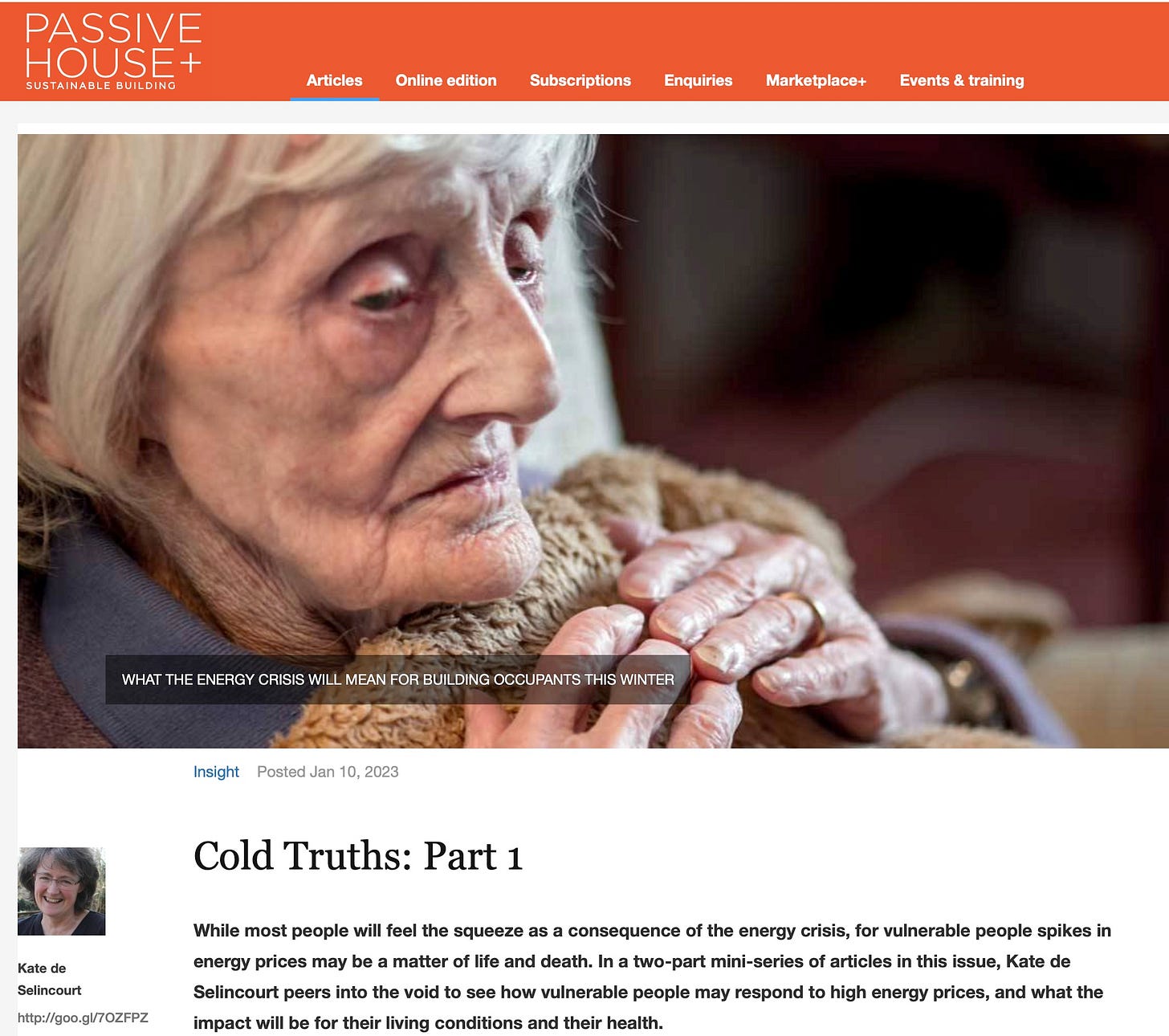Listen to Zero Ambitions: PH+ Revisited
My first attempt at hosting a podcast, in a discussion with Kate de Selincourt.
Writing about another trans-Atlantic podcast, the Guardian reviewer noted that “By and large, if there is one thing that the world absolutely does not need any more of, it’s podcasts.” I tend to agree and don’t listen to many; I spent most of my life listening to the Canadian Broadcasting Corporation, which took radio seriously, and thought most podcasts sounded like American AM radio drive-home shows.
I was wrong. After getting addicted to a few, starting with The War on Cars, I have come to realize that it is an effective medium for delivering a message or theme like Ben Adam-Smith does on House Planning Help or Alex Wise does on Sea Change Radio. They both interviewed me a couple of times, so I listened and stuck around.
I was also interviewed for Zero Ambitions, “a podcast about sustainability, the built environment, and zero-carbon goals.” It’s hosted by Dan Hyde and Alex Blondin of Everything is User Experience, a consultancy, and Jeff Colley, the publisher of Passive House Plus (PH+), a wonderful magazine published in the UK and Ireland that covers Passive House and green building.
I have always thought that there is much that we can learn from what is happening in the UK and Ireland. In some areas, they are way ahead of North America, with groups like Architects for Climate Action and Architects Declare, and a real concern about the importance of embodied carbon and retrofit. In other areas, it is appalling that such a sophisticated country could build such terrible housing.
So, over a Guinness in Dublin in May, I pitched Jeff on the idea of a podcast that would take some of the most interesting ideas and people from the pages of Passive House Plus and explain them to a larger audience. It’s now PH+ Revisited and is part of the Zero Ambitions Podcast.
What really inspired me was Kate de Selincourt’s two-part series Cold Truths, where she “peers into the void to see how vulnerable people may respond to high energy prices, and what the impact will be for their living conditions and their health.” How it started:
“Households across the UK and Ireland are in for a cold, and frighteningly expensive winter. Prices for gas, electricity and heating fuel have shot up. In the UK, government interventions have capped some of the rises till April, but costs are still double what they were a year ago. In Ireland, no such cap currently exists. As a result health specialists are in no doubt that people will die. Vulnerable adults will lose their lives because their homes are cold – and damp. But so also will babies and young children. A respiratory consultant told the press he had “no doubt” that cold homes would cost children’s lives this winter, adding that many more will suffer harm to their health and their life chances, marking them for the rest of their lives.”
So much of British housing is, to use a too common British expression, “not fit for purpose.” People often have to choose between heating or eating in winter, and they boil in summer. I had to start this series with Kate, who is so knowledgeable and passionate about the subject.
This is the first podcast I have hosted, and I was nervous. It is not as tight as I would have liked, but this should change; Jeff Colley and PH+ give me so much material to work with that I will have lots of opportunity for improvement!
Listen here "PH+ revisited: 'Cold Truths' about heating and energy in Britain, with Lloyd Alter and Kate de Selincourt






Https://www.washingtonpost.com/climate-environment/interactive/2023/hot-cold-extreme-temperature-deaths/
"In most places, the temperature is more often too cold than too hot, which helps explain why more than 90 percent of temperature-related deaths were from cold, according to the Lancet study. On every continent, cold deaths surpassed heat deaths."
You insulate against BOTH cold and hot, but cold brings with it far more risks—despite the current global climate-prostituting about killer heatwaves in Europe, Japan, and the U.S.